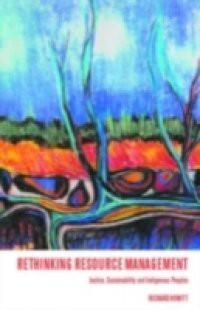This book offers students and practitioners a sophisticated and convincing framework for rethinking the usual approaches to resource management. It uses case studies to argue that professional resource managers do not take responsibility for the social and environmental consequences of their decisions on the often vulnerable indigenous communities they affect. It also discusses the invisibility of indigenous people' values and knowledge within traditional resource management. It offers a new approach to social impact assessment methods which are more participatory and empowering. The book employs a range of case studies from Australia, North America and Norway.

